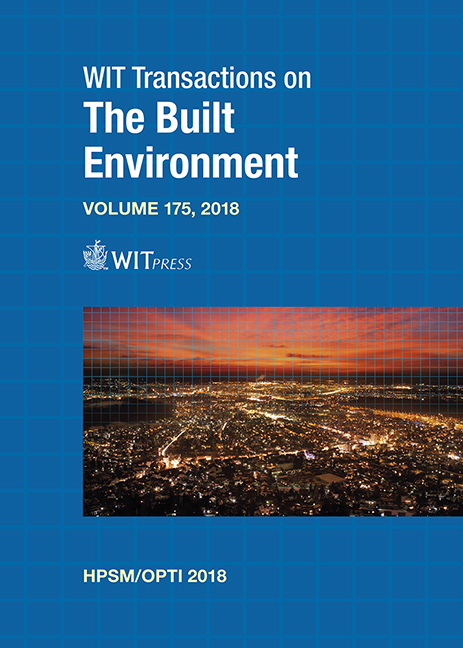THERMAL FATIGUE EFFECTS ON TENSILE PROPERTIES OF SURFACE-TREATED NATURAL FIBER/POLYLACTIC ACID GREEN COMPOSITE
Price
Free (open access)
Transaction
Volume
175
Pages
12
Page Range
59 - 70
Published
2018
Size
1,060 kb
Paper DOI
10.2495/HPSM180071
Copyright
WIT Press
Author(s)
HIDEAKI KATOGI, KENICHI TAKEMURA, SHUNSUKE KAWASAKI
Abstract
This study investigated alkali treatment effects on tensile properties of plain woven jute-fiber-reinforced green composites under thermal fatigue. Concentrations of the alkali treatment were 1% and 15%. Thermal fatigue tests of non-treated and alkali-treated green composites and polylactic acid (PLA) were conducted at temperatures of 35–80�C. The maximum number of cycles was 103 cycles. Quasi-static tensile tests were conducted using non-treated and alkali-treated green composite and PLA samples after thermal fatigue. Surfaces of non-treated and alkali-treated jute fibers were observed. Results show the following. Tensile strength of non-treated green composite decreased along with an increased number of cycles. Tensile strengths of 1% and 15% alkali-treated green composites exhibited almost no change until 102 cycles. Young’s moduli of non-treated and 1% and 15% alkali-treated green composites exhibited almost no change until 102 cycles. Tensile strengths of 1% and 15% alkali-treated green composites at 103 cycles were lower than those of 1% and 15% alkali-treated green composites at 102 cycles. Furthermore, Young’s moduli of non-treated and 1% and 15% alkali-treated green composites at 103 cycles were lower than those of non-treated, 1% and 15% alkali-treated green composites at 102 cycles. Tensile properties of PLA remained almost unchanged under thermal fatigue. Surface observations revealed a smooth surface of non-treated jute fiber. However, surfaces of 1% and 15% alkali-treated jute fiber were not smooth. Therefore, tensile strength of green composite under thermal fatigue can be improved by surface roughness of 1% and 15% alkali-treated jute fiber up to 102 cycles.
Keywords
green composite, natural fiber, polylactic acid, surface treatment, tensile property, thermal fatigue





